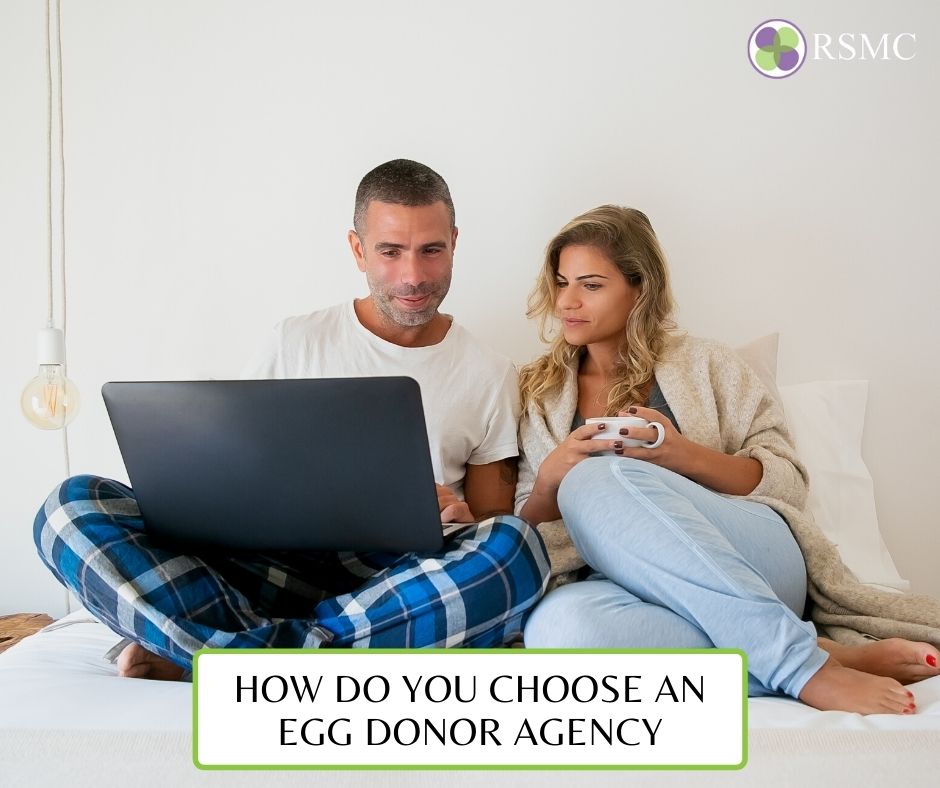Egg donation is the process where a woman’s ovaries undergo stimulation to produce multiple eggs. Usually for the purpose of third-party reproduction, the procedure then retrieves and donates the eggs. The eggs may be frozen for later use or fertilized right away via In Vitro Fertilization (IVF) in a laboratory. The science behind Egg (Oocyte) and embryo donation, as well as IVF, has completely changed the future of reproductive medicine. Over the past several decades, since the first IVF pregnancy and subsequent birth, egg donation has rapidly gained public attention. We explore all aspects of egg donation, donors, recipients and related risks of the process.
A woman is born with all the eggs she will ever have, and research proves that the quality and quantity of eggs are closely related to a woman’s age. A woman’s fertility starts to decline as early as age 30. Though she will still be fertile, the quality and quantity of available eggs will drop rapidly as well. There is also a higher chance of chromosomal abnormalities as a woman gets older. Since age is a major factor, some women who wish to have children later may need to explore other options. One option at this stage is to seek out a donor through an egg donation agency such as RSMC – San Diego & Irvine or by utilizing a frozen egg bank.
History of Assisted Reproductive Technology & Egg Donation
Assisted Reproductive Technology, also known as ART, has advanced in stages with the earliest reports dating back to 1790.
In 1944, physicians John Rock and Miriam Menkin reported the first in vitro fertilization of a human egg, though no pregnancy resulted.
The world saw the first successful pregnancy using frozen sperm in 1954 and in 1978. The first baby was conceived through IVF and was born that same year.
In 1983, the first report of pregnancy from donated eggs surfaced in Australia. Unfortunately, the pregnancy did not go to full term. However, a year later in California, a successful delivery occurred using donated eggs. The birth heralded a new era for single women, infertile couples, and same-sex couples who wished to start a family. For women who were unable to use their eggs or who had a risk of passing on various genetic disorders, egg donation opened the doors to exciting new possibilities.
Reasons to Use Donor Eggs
One can categorize Recipients of donated eggs into several subsets:
- Women who have failed IVF multiple times because of the poor quality of eggs and genetic abnormalities.
- Premature ovarian failure
- Women who cannot produce viable eggs
- Gay couples
- Other unexplained infertility issues.
Preparation for Egg Recipients
A thorough medical examination will be conducted to ensure that the procedure does not put the recipient’s health at risk. The examination includes blood tests and an ultrasound. A thorough explanation of the procedures, as well as the psychological and social impacts, should always be discussed during preparations.
In some cases, an egg donor may not be necessary if the woman is still young enough to freeze her eggs. Of the women who are physically able to conceive, some may want to full control over when they can start a family. Egg freezing gives them the option to do so. Depending on their individual circumstances many women choose to freeze their eggs in their twenties or thirties, the age where eggs are of the highest quality and most viable. The same procedure then retrieves the eggs as in egg donation and freezes them for later use.
Egg Donation Risks
As with any medical procedure, there are risks of egg donation that one should consider while choosing to pursue egg donor IVF. With both fresh and frozen eggs, there is a good chance that any given cycle will result in pregnancy. The possibility of multiple pregnancies can not be ignored as it carries the added potential for premature delivery, miscarriage or developmental delays in the child. It also increases the risk of high blood pressure and gestational diabetes for the mother. Because of these reasons, most physicians suggest not to implant more than one embryo at a time.
Why Does a Woman Choose to Donate her Eggs?
For many donors, it is an altruistic endeavor; while for a few others, it’s the financial reward. Generally, a woman considers egg donation because she knows someone who has struggled to have a baby. Some egg donors are mothers themselves and they know how important it is to have a child. Giving the gift of life is a powerful motivator and helping someone in need is self-fulfilling.
Donors who are motivated by financial gain are hesitant because of the time commitment and physical requirements that come with the process. However, motivating factors such as the desire to further their education, travel or to buy a home can help reinforce their decision.
Not just anyone can be an egg donor. There are several steps to ensure that a potential donor meets an agency’s requirements. First, any potential donor must submit an application that provides information on their educational background, hobbies, family history and medical history. This is to ensure that our Intended Parents can make the best possible choice for their family.
Once they are accepted to our program and matched with an Intended Parent, an egg donor will undergo a stringent screening process. This typically includes a medical screening, drug screening, an in-depth psychological evaluation, and a background check. If the screening process goes smoothly, a contract will be signed.
What Should You Tell Your Children?
Based on current research, children told about their genetic origins while young fair better going into adulthood. Nonetheless, no one can force the Intended Parent to tell their child and the implications of this decision should be weighed. Making the decision to not tell should be researched and decided with caution knowing the future risks.
Some intended parents not only intend to tell their children but also desire an open relationship with the donor. If the donor agrees, they can join an open release program. This program allows the donor to have a mediated meeting with the child at the appropriate age. If this is important to the intended parent, then a donor who has opted into this program is a better fit over a donor who has not elected to participate.
Donors and Intended Parents can potentially meet through the Donor Sibling Registry. There is a nominal fee to use the registry and each party can individually place their information online with the hope of a future match. In many cases, the registry finds half of the siblings.
Single Women and LGBT Couples Benefit From Egg Donation
While there are many couples that can benefit greatly from donated eggs, it also serves as a family-building option for individuals who wish to be a single parent and those in the LGBT community.
The ability to build a family with a biological connection, as opposed to adoption, is an exciting option for both communities. Increasingly women who have not found Mr. Right and are over the age of 40 are building a family on their own terms. Using a combination of donor eggs and donor sperm, these women are conceiving and birthing children at historical rates. In addition, egg donation has been revolutionary in the same-sex community, and men having babies using a gestational carrier is on the rise.
Lesbian couples are using donor eggs; if neither partner can use their eggs. With the added family security that comes with the legalization of same-sex marriage, many couples are becoming more interested in building their family unit within the institution of marriage. For LGBT couples, egg donation is a happy and exciting process, allowing them to fulfill their dream of a family. But the common ground between them all is the desire to have a healthy child.
What Egg Donors and Recipients Can Look Forward To
The egg donation process is two-fold: for egg donors, it’s a wonderful chance to help others achieve their dreams. And for egg recipients, it’s a chance to conceive and start a family they’ve wanted for so long. Essentially it is making the impossible possible.
There are many questions that couples have when considering using donated eggs. Will the recipient feel that the child is truly theirs? How do they tell their child? Reproductive Sciences Medical Center – San Diego & Irvine is here to help answer any questions you may have about the egg donation process. You can visit us at www.fertile.com or call us at 858-436-7186 to learn more about egg donation risks or to schedule a consultation.























